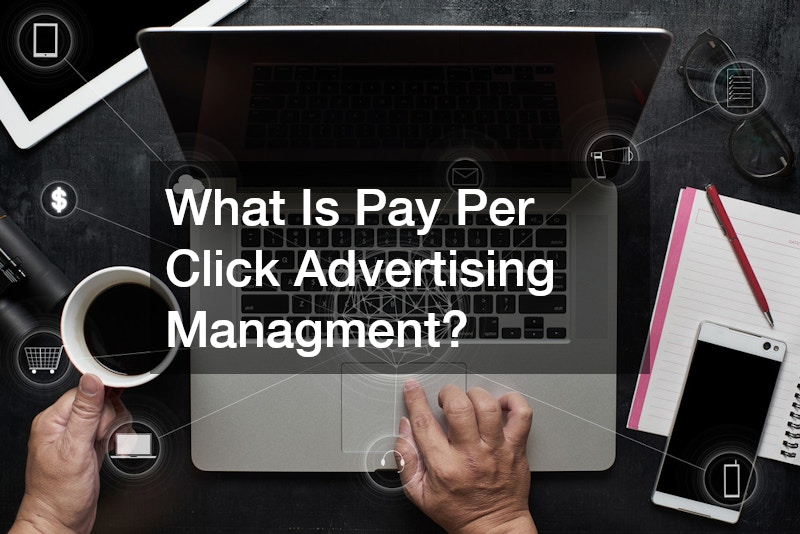Pay Per Click (PPC) advertising management is a strategic approach to online marketing where advertisers pay a fee each time one of their ads is clicked. Instead of paying for ad impressions or placements, PPC allows businesses to invest only when a potential customer shows interest by clicking on the ad. This performance-based model has become a cornerstone in digital marketing strategies, helping companies of all sizes reach targeted audiences and generate measurable results.
At its core, PPC advertising is most commonly associated with search engine advertising, particularly through platforms like Google Ads and Bing Ads. In these environments, advertisers bid on keywords that are relevant to their products or services.
When a user enters a search query containing those keywords, the ad may appear alongside the search results. If the user clicks on the ad, the advertiser is charged a predetermined amount. This process creates an auction-like system where the cost per click (CPC) is influenced by factors such as keyword competitiveness, ad quality, and relevance to the search query.
Effective PPC advertising management involves several critical steps:
Keyword Research and Selection:
The foundation of any successful PPC campaign lies in thorough keyword research. Advertisers must identify the terms and phrases their target audience is likely to use when searching for products or services. This step requires balancing the volume of searches with the level of competition. Long-tail keywords, which are more specific and less competitive, can often provide a more cost-effective way to reach potential customers.
Ad Creation and Optimization:
Once the right keywords have been identified, creating compelling ad copy becomes the next priority. The goal is to craft ads that not only capture attention but also persuade users to click. Effective ads typically include a strong headline, clear call-to-action (CTA), and relevant information that aligns with the user’s search intent. Additionally, testing different versions of ad copy—often through A/B testing—can help determine which messages resonate best with the audience.
Landing Page Development:
PPC advertising does not end at the click. After a user clicks on an ad, they are directed to a landing page where they ideally convert into a customer or lead. Effective landing pages are critical to the success of a PPC campaign. They should be optimized for user experience, load quickly, and provide clear, persuasive content that encourages the desired action, whether it’s making a purchase, filling out a form, or subscribing to a newsletter.
Bid Management and Budgeting:
PPC campaigns require constant monitoring and adjustment. Advertisers must manage bids on their selected keywords to ensure that they are competitive enough to appear in prime ad positions without overspending. This involves setting daily or monthly budgets, adjusting bids based on performance data, and sometimes employing automated bid strategies provided by ad platforms. Effective bid management maximizes return on investment (ROI) by ensuring that advertising dollars are spent efficiently.
Performance Tracking and Analytics:
One of the greatest advantages of PPC advertising is the ability to measure performance in real time. Advertisers can track key performance indicators (KPIs) such as click-through rates (CTR), conversion rates, cost per conversion, and overall ROI. This data is essential for understanding which aspects of a campaign are working well and which need improvement. PPC advertising management tools and platforms provide detailed analytics that help marketers optimize their strategies continuously.
Continuous Optimization:
The digital landscape is dynamic, and what works today may not work tomorrow. PPC management involves a process of continuous testing, analyzing, and refining. Advertisers might adjust keywords, tweak ad copy, reconfigure bidding strategies, or redesign landing pages based on evolving performance metrics. This iterative approach helps ensure that PPC campaigns remain effective and aligned with business goals over time.
The Benefits of PPC Advertising Management
One of the primary benefits of PPC advertising management is its immediate impact. Unlike search engine optimization (SEO), which can take months to show results, PPC campaigns can start driving traffic almost immediately after launch. This immediacy makes PPC an attractive option for businesses looking to generate quick results or capitalize on time-sensitive promotions.
Another significant benefit is the ability to target specific demographics, geographic locations, and even devices. Advanced targeting options enable advertisers to reach highly specific audiences, ensuring that ads are seen by the most relevant potential customers. This level of precision is particularly valuable in today’s competitive digital marketplace, where budget efficiency is critical.
Additionally, the data-driven nature of PPC advertising allows for transparent performance measurement. Marketers can track exactly how their advertising spend translates into clicks, conversions, and revenue. This accountability facilitates better decision-making and helps justify marketing expenditures.
Watch the video above to learn more about Pay Per Click advertising management!.




